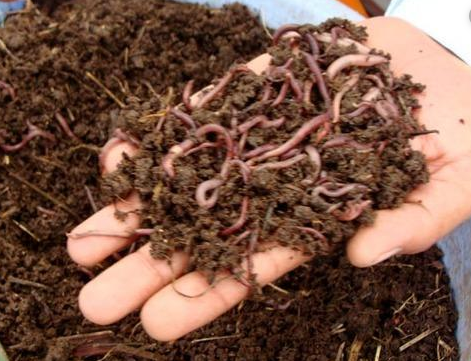The study was conducted under field conditions during the winter season of 2017 taking broccoli cv. Imperial (V1) and Premium crop (V2) obtained local seed market with five treatments of organic manures viz. Control (M0): (No organic manure), Cowdung (M1): (25 t/ha), trichoderma compost (M2): (10 t/ha), Vermicompost (M3): (12 t/ha) and poultry litter (M4): (14 t/ha). The trial was conducted in Randomized Complete Block Design (RCBD) with three replications. The study revealed that the different manures and cultivars had a significant influence on growth, yield and yield attributing characters of broccoli. The maximum yield (8.1 kg/plot) was obtained from vermicompost followed by trichoderma compost in Premium crop. The control treatment produced the minimum yield. The experimental findings showed that the use of vermicompost was better for broccoli growth and development as compared to other used organic manures.
Key words: Broccoli, organic manures, yields.
Introduction
Broccoli (Brassica oleracea L.var. italics) belongs to family Brassicaceae is a fast growing crop and requires high nitrogen input. Broccoli and other brassica vegetables have high content of glucosinolates which has cancer-fighting properties. Broccoli buds are rich source of minerals especially K, S, P, Mg and micro-elements (Zhao et al., 2007). The cultivation of broccoli in Bangladesh mainly depends on indiscriminate use of agro-chemicals. The use of chemical fertilizers has been many-a-times reported for degrading soil and water resources. Again, application of chemical fertilizers alone can supply only one or two nutrient elements to the crop. On the other hand, supplying only organic inputs can improve soil physical and biological environment, water-holding capacity, high cation exchange capacity and low bulk density and they a foster diverse population of beneficial soil microorganisms (Bulluck et al., 2002). Organic fertilizers contain macro and micro-nutrients, vitamins, growth-promoting factors indole 3-acetic acid (IAA), gibberellic acid (GA), and beneficial microorganisms (Natarajan, et al., 2007) and they increase production in ways similar to inorganic fertilizers (Tonfack et al., 2009). Moreover, organic farming is both a philosophy and a system of agriculture (Chowdhury, 2004). Thus, this experiment was carried out in order to study the effect of various sources of plant nutrients on growth, development and yield of broccoli and to compare the nutrient values in different organic sources.


Recent Comments